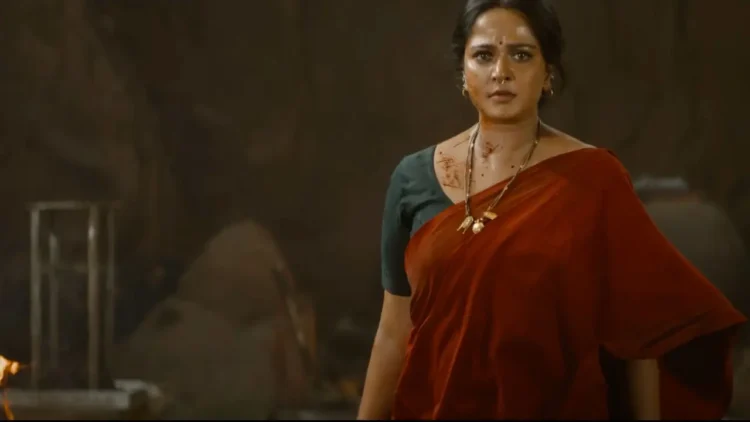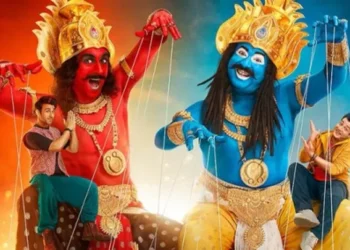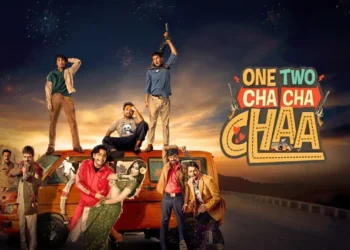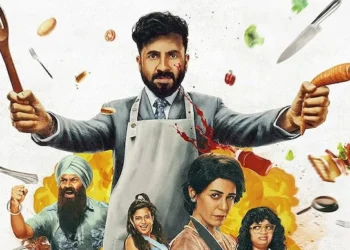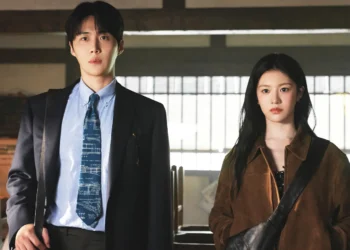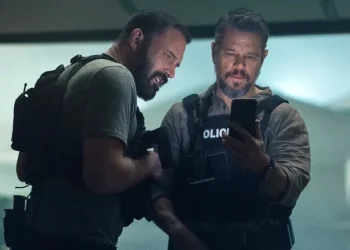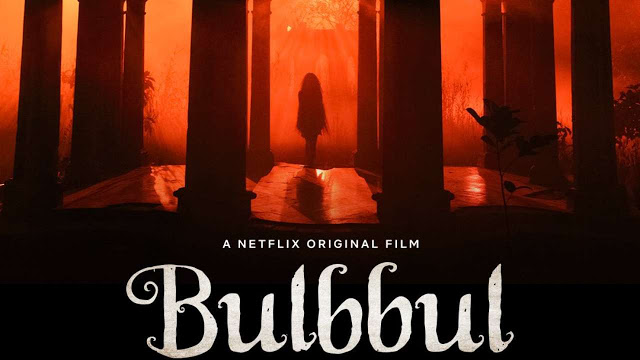Director Krish Jagarlamudi, recognized for creating impactful and thought-provoking films, has faced difficulties since the triumph of Gautamiputra Satakarni in 2017. At a pivotal juncture in his career, where it was essential for him to produce a successful film, he collaborated with Anushka Shetty on Ghaati. This movie is set against the rugged backdrop of the Eastern Ghats and revolves around the themes of cannabis cultivation and trafficking. Alongside Anushka, Tamil actor Vikram Prabhu was also cast. After a prolonged period of production, the film finally made its theatrical debut today.
Story
In Ghaati, Sheelavathi (played by Anushka Shetty) and Desi Raju (played by Vikram Prabhu) are an engaged couple aspiring to save money for their wedding. Sheelavathi is a bus conductor, while Desi Raju works as a lab technician. Simultaneously, two powerful figures in the cannabis trade, Kundala Naidu (Chaitanya Rao) and Kaastala Naidu (Ravindran Vijay), discover the emergence of a new strain of liquid cannabis produced from a rare breed called ‘Sheelavathi’, which is sourced by a mysterious gang in the Western Ghats.
Kundala Naidu soon learns that Desi Raju is the enigmatic leader behind this gang responsible for producing the liquid cannabis. This raises several questions: Why would Desi Raju, who appears to be an ordinary lab technician, along with Sheelavathi and a few associates, venture into the drug trade? What is their backstory? And what roles do the Ghaatis play within the cannabis economy of the Western Ghats? These inquiries propel the narrative forward.
Performances
Anushka Shetty’s portrayal of Sheelavathi is passable. Although she is known for excelling in demanding and intense roles, in Ghaati, her performance lacks the depth and variation typically expected. Even though her character is pivotal in the latter half of the film, her performance fails to impress. Vikram Prabhu, making his Telugu debut, manages to make an impact, but his overall performance offers little to discuss. While his Telugu dubbing occasionally felt off, his effort in the process deserves commendation.
Chaitanya Rao, as Kundala Naidu, stands out as the only actor who somewhat resonates with the audience through his role. Occasionally overly dramatic, his performance is still commendable. Jagapathi Babu, portraying a morally ambiguous police officer, provides some comic relief, though his role and performance are ultimately unremarkable. Jisshu Sengupta’s character feels underutilized, and despite the presence of several talented actors, no one, including the leading duo, seems genuinely invested in their roles. The lackluster writing and uninspired screenplay seem to have led to this lack of enthusiasm among the cast.
Behind the scenes
The film’s music, composed by Nagavelli Vidya Sagar, is notably one of its weaknesses. None of the songs resonate, and the background score fails to enhance the film’s atmosphere. In a time where audiences prioritize strong background music, the score presented here feels uninspired and outdated. The editing by Chanakya Reddy Toorupu leaves much to be desired; improved editing, particularly in the second half, could have made the film more bearable.
On a brighter note, Manojh Reddy Katasani’s cinematography is commendable. He effectively captures the stunning vistas and scenic landscapes of the Eastern Ghats, particularly excelling in the film’s opening scenes. The production quality from ‘First Frame Entertainments’ is acceptable, though they could have done better with the visual effects, which come across as subpar. Unfortunately, both the writer Chintakindi Srinivas Rao and director Krish Jagarlamudi fail to deliver an engaging and entertaining film.
Final Verdict
The film’s backdrop of the Eastern Ghats and the Ghaatis is promising, but predictable narrative, weak writing, mediocre music, lacklustre performances, and excessive dependence on action are some of the negative aspects of the film that has left it without any soul albeit presence of strong performers in the form of Anushka, Vikram Prabhu, Chaitanya Rao, and Jisshu Sengupta.
Krish is recognized for his insightful and meaningful dialogues in films like Gamyam, Vedam, Krishnam Vande Jagadgurum, Kanche, and Gautamiputra Satakarni, which are memorable for their philosophical and mythological depth. However, Ghaati is riddled with clichéd and uninspiring dialogues, leading one to question whether this film truly bears his signature style. Both the dialogue and scriptwriting have failed significantly, with only a couple of lines showcasing Krish’s typical quality.
Beginning on a reasonable note against a novel backdrop, the film introduces the Ghaatis and their livelihoods, but soon devolves into a predictable story about an individual’s transformation into a criminal and legend, presented with sluggish pacing, poor music, mediocre performances, and uninspiring dialogue. The first half unfolds without any significant highs or memorable moments, leading to an unexciting pre-interval situation. Expectations for a gripping action narrative in the second half are dashed as the director presents a bland continuation filled with repetitive action scenes, lacking purpose and coherence.
In summary, Ghaati emerges as an underwhelming and forgettable film from Krish and his team. It’s particularly disappointing to see a director of Krish’s caliber deliver such a lackluster project that fails to justify a cinema outing. The film may struggle to remain in theaters beyond its opening weekend.


